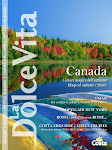Summary
There is a low threat from terrorism. But you should be aware of the global risk of indiscriminate terrorist attacks which could be in public places, including in places frequented by expatriates and foreign travellers.
You should carry a copy of your passport data page (including any visa pages) with you at all times for identification purposes. You should also keep copies of your insurance policy, European Health Insurance Card (EHIC), ticket details and a 24-hour emergency number in a safe place as well as leaving further copies, along with your itinerary and contact details, with family and/or friends.
We recommend that you obtain comprehensive travel and medical insurance before travelling. You should check any exclusions, and that your policy covers you for all the activities you want to undertake. See General (Insurance) fo this advice.
Terrorism
There is a low threat from terrorism. But you should be aware of the global risk of indiscriminate terrorist attacks which could be in public places, including in places frequented by expatriates and foreign travellers.
Taxis
For reasons of safety and economy, you are advised to use major taxi companies, such as AAA (23311 3311) or Profitaxi (26131 4151). These companies are usually able to tell you the type, number and colour of the car in advance. If you do pick up a taxi in the street, always check the per kilometre price before getting in. Some taxis operating in areas frequented by tourists can charge highly inflated prices. Taxi rates per kilometre must be clearly marked on the side of the taxi.
In August 2007 the City of Prague introduced the ‘Taxi Fare Place’ scheme. Taxi companies operating from stands displaying the ‘Taxi Fare Place’ can charge a maximum of 28 Crowns per kilometre. In case of dispute, always ask for a receipt from the taxi-metre displaying the price, rate, registration number and name of the driver. Complaints should be sent to the relevant taxi-company directly and should also be copied to taxi@cityofprague.cz for investigation by the City of Prague.
Reporting Lost/Stolen property in Prague
If your passport, wallet or other items are lost or stolen, you should report the incident immediately to the nearest police station (‘Policie’) and obtain a police report (‘Policejni zprava’).
Foreigner’s Police Station in Prague:
Jungmanovo namesti 9
Prague 1
(nearest metro stop is Mustek).
This police station is open 24 hours.
Local Travel
Public transport tickets must be purchased before travelling. The ticket tariffs were increased on 01 January 2007. Tickets must be validated at the start of the journey, at the yellow machines at the entrance to metro stations or on board buses and trams, including before boarding the funicular tram at Petrin. You will be fined on the spot if you are travelling with an invalid ticket. The fine, usually 500 crowns (around £16.00), is paid directly to the ticket inspector and a receipt should be issued. Ticket inspectors will not normally excuse passengers who claim not to have known that tickets must be validated before travel. If you cannot pay the fine on the spot, ticket inspectors will often call the Police and you may be arrested. The fine increases to 950 Crowns (around £30.00) if you do not pay immediately. Tickets can be bought at most large hotels, metro stations and at many newspaper stands (‘Trafika’) and convenience stores.
Air Travel
If you buy duty-free or duty-paid products from Prague Airport and intend to transit another airport before arriving at your final destination, be sure to ensure that any liquids you purchase are properly packed by the shop assistant in a properly sealed clear bag. Ensure you retain the receipt and do not open the seal on the bag until you arrive at your final destination. Failure to do this may mean that your purchases are confiscated by security control checkpoints at your transit airport. If you transit an airport outside of the European Union you may not be able to carry liquids even if properly packaged. Check with the airport concerned.
Visas
Visas may be required to enter the Czech Republic. British passports holders, whose nationality is shown as anything other than a British Citizen, must contact your nearest Czech Embassy to determine whether you require a visa for entry to the Czech Republic.
Travelling with children
Children aged 15 and above must have their own passports. Those travelling on a parent's passport will be refused entry to the Czech Republic. You are also advised to carry with you a photocopy of the datapage of your passport at all times, for identification purposes.
Single parents or other adults travelling alone with children should be aware that some countries require documentary evidence of parental responsibility before allowing lone parents to enter the country or, in some cases, before permitting the children to leave the country.
Insurance
We recommend that you obtain comprehensive travel and medical insurance before travelling. You should check any exclusions, and that your policy covers you for all the activities you want to undertake.
Accommodation
If you are travelling in a group you should keep a careful note of your hotel telephone number and address in case you become detached from the rest of your party. Also leave your accommodation information and contact details of your travelling companions with a friend or relative at home who you can contact if you get separated from your group.
Money
It is almost impossible to change Scottish or Northern Irish bank notes in the Czech Republic. Travellers' cheques are easily exchanged in the main cities. If you are using local Foreign Exchange offices you should check before completing the transaction that you are content with the exchange rate offered and the commission charges. Rates and commission charges can vary substantially between offices.
Since 15 June 2007 new legislation on the controls of cash entering or leaving the EU apply in all Member States. Any person entering or leaving the EU will have to declare the cash that they are carrying if this amounts to 10,000 euros or more; this includes cheques, travellers' cheques, money orders, etc. This will not apply to anyone travelling via the EU to a non-EU country, as long as the original journey started outside of the EU nor to those travelling within the EU.














No comments:
Post a Comment